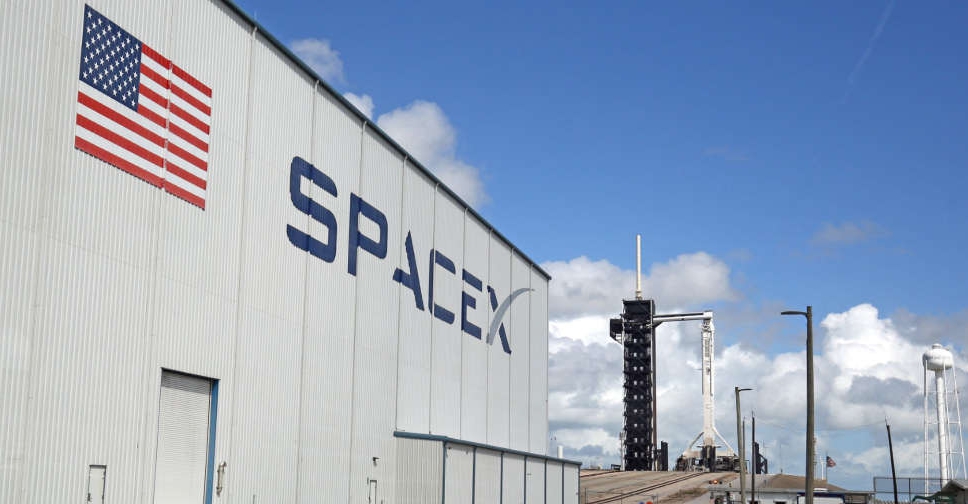
SpaceX's workhorse Falcon 9 rocket was grounded by the US Federal Aviation Administration (FAA) on Friday after one broke apart in space and doomed its payload of Starlink satellites.
The first failure in more than seven years of a rocket relied upon by the global space industry.
Roughly an hour after Falcon 9 lifted off from the Vandenberg Space Force Base in California on Thursday night, the rocket's second stage failed to reignite. The rocket deployed its 20 Starlink satellites on a shallow orbital path, where they will reenter Earth's atmosphere and burn up.
The attempt to reignite the engine "resulted in an engine RUD for reasons currently unknown," SpaceX CEO Elon Musk wrote early on Friday on his social media platform X, using the initials for the industry term Rapid Unscheduled Disassembly, which usually means explosion.
The Falcon 9 will be grounded until SpaceX investigates the cause of the failure, fixes the rocket, and receives the FAA's approval, the agency said in a statement. Depending on the issue's complexity and SpaceX's plan to fix it, that process could take several weeks or months.
The botched mission of the world's most active rocket ended a success streak of more than 300 straight missions during which SpaceX has maintained its dominance of the launch industry. Many countries and space companies rely on privately owned SpaceX, valued at roughly $200 billion, to send their satellites and astronauts into space.
Musk said SpaceX was updating the software of the Starlink satellites to force their onboard thrusters to fire harder than usual to avoid a fiery atmospheric reentry.
"Unlike a Star Trek episode, this will probably not work, but it's worth a shot," Musk said.
SpaceX wrote on Friday evening on X that the satellites pose no threat to the public. The company did not estimate when they would make their reentry, which would appear as streaks of light across the sky.
"Shooting stars," Musk said, replying to the SpaceX post.
Their altitude is so shallow that Earth's gravity is pulling them 3 miles (5 km) closer toward the atmosphere with each orbit, SpaceX said earlier in the day, confirming they would "re-enter Earth's atmosphere and fully demise."
NASA said in a statement on Friday it monitors all of SpaceX's Falcon 9 missions.
"SpaceX has been forthcoming with information and is including NASA in the company's ongoing anomaly investigation to understand the issue and path forward," a US space agency spokesperson said.
SpaceX said the second stage's failure occurred after engineers detected a leak of liquid oxygen, a propellant.
'INCREDIBLE RUN'
The mishap occurred on Falcon 9's 354th mission. It was the first Falcon 9 failure since 2016 when a rocket exploded on a launch pad in Florida and destroyed its customer payload, an Israeli communications satellite.
"We knew this incredible run had to come to an end at some point," Tom Mueller, SpaceX's former vice president of propulsion who designed Falcon 9's engines, replied to Musk on X. "... The team will fix the problem and start the cycle again."
The failure will likely stymie SpaceX's intensifying Falcon 9 launch pace. The rocket's 96 launches last year were its most to date and exceeded the annual launch total in any country. By comparison, China, a space rival to the United States, launched 67 missions to space in 2023 using various rockets.
"It is extremely rare for Falcon to fail. They have a much better rate than almost any other rocket developed in terms of the success of their mission," said Will Whitehorn, chair of the venture capital firm Seraphim Space Investment Trust.
Although Thursday night's Falcon 9 flight was an in-house mission, the rocket's grounding is likely to impact upcoming SpaceX customer missions.
Falcon 9 is the only US rocket capable of sending NASA crews to the International Space Station. NASA was expecting to launch its next astronaut mission in August, with SpaceX's Crew Dragon astronaut capsule launching atop the rocket.
NASA has been trying to help fix unrelated problems with Boeing's BA.N Starliner spacecraft, which is in the midst of a test mission to prove it can become NASA's second astronaut ride to orbit alongside Crew Dragon.
SpaceX was poised to launch its Polaris Dawn Crew Dragon mission as early as July 31. The mission would send four private astronauts into orbit for a few days to conduct the first commercial spacewalk using the company's newly designed spacesuits.
Jared Isaacman, head of the Polaris program and a mission crew member, said he expects SpaceX to quickly recover from the failure.
"As for Polaris Dawn, we will fly whenever SpaceX is ready and with complete confidence in the rocket, spaceship and operations," Isaacman wrote on X.
Musk replied, "We will investigate the issue and look for any other potential near-misses."
SpaceX has launched about 7,000 Starlink satellites of various designs into space since 2018 for its global broadband internet network. Industry analysts have said the satellites on Thursday's mission could be worth at least $10 million (AED 36.7 million) combined.

 Nasdaq set to confirm bear market as Trump tariffs trigger recession fears
Nasdaq set to confirm bear market as Trump tariffs trigger recession fears
 Dana Gas and Crescent Petroleum exceed 500M boe in Khor Mor field
Dana Gas and Crescent Petroleum exceed 500M boe in Khor Mor field
 China to impose tariffs of 34% on all US goods
China to impose tariffs of 34% on all US goods
 Shares bruised, dollar crumbles as Trump tariffs stir recession fears
Shares bruised, dollar crumbles as Trump tariffs stir recession fears
 Wall Street futures sink as tariffs fuel recession fears
Wall Street futures sink as tariffs fuel recession fears




